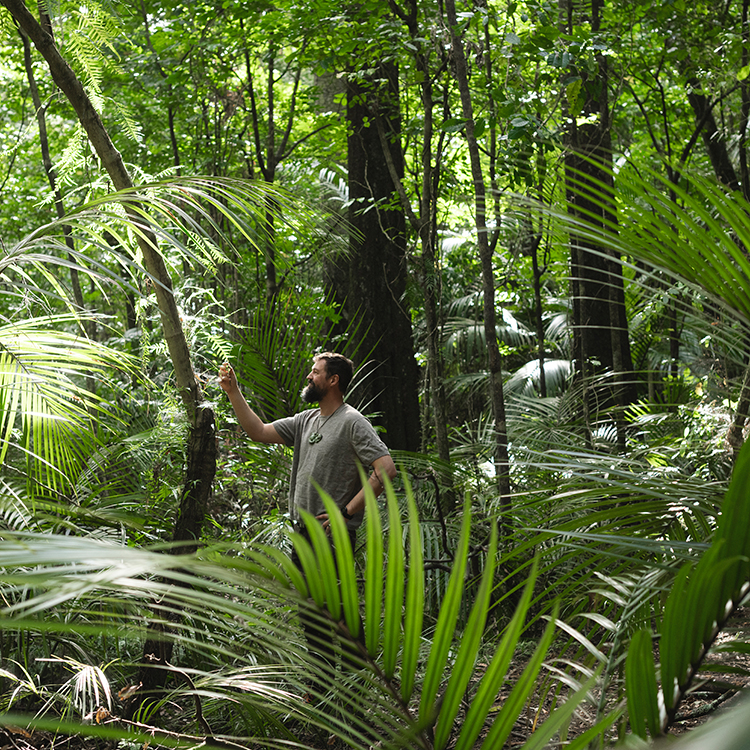
Q&A: Brent Malone, Rugby Referee
Brent Malone is the Chairman of the Hawke’s Bay Rugby Referees Association and a passionate referee actively involved in grassroots rugby.

We chat with Sam Gibson, aka Sam the Trap Man, about his conservation work.
Sam Gibson, better known as Sam the Trap Man, is a pest trapper, hunter, conversationist, environmental warrior and social media sensation. He and Pure Advantage have produced a documentary, Think Like a Forest, encouraging communities to join a mission towards Recloaking Papatuanuku.
When did Sam Gibson became Sam the Trap Man?
I used to travel around the country setting up conservation projects for people; the trapping company I was working for was part of the service. I was designing the projects and working with communities to get the best out of those projects. I also spent years working with the Department of Conversation; I started working for them informally when I was 12. As a kid, the classroom was not the best place for me, so I got sent up into bush, to Te Urewera, to learn from some of the great bushmen there.
So, trapping and looking after our forest have been a big part of who I am since I was young. Some people have several careers but since I was a young fella I have known that just as the forest has looked after me, it is my role to support it.
I realised one day that there weren’t many young people working in the bush anymore. My wife said: “why don’t you get on to this thing called social media, and tell the stories?” That would have been when ‘Sam the Trap Man’ came about, eight years ago.

Do you work with a team or is it all you?
I’ve got a day job as a Catchment Co-ordinator, I co-share a conservation project, and I speak all around the country… but Sam the Trap Man is just me. My wife is super supportive, though.
You have recently been elected to Gisborne District Council. What inspired that move?
I’m from Gisborne, on both sides; my family used to be farmers. Cyclone Gabrielle was really challenging. My grandfather’s generation planted pines because they knew that trees were better than none, but we saw the impact of that, with swathes of pine forest falling off the hills into gullies and being pushed down rivers, taking out fencing and infrastructure, down into the towns and out onto beaches… and that slash is still kicking around, having impacts on our marine life as well.
That’s a big question that we have to deal with at Gisborne District Council. We need to navigate that line between retaining an industry and making responsible, multi-generational decisions. Also, we have the 30-year infrastructure plan that I want to be part of; our roads are being impacted by the weather and also the heavy traffic from the pine industry.
I want to be useful. Our family have always been people who give back to our community.
The awesome part of it is that I have the balance because I’ll keep trapping and doing the catchment work with farmers.

Tell us about Think Like a Forest.
Pure Advantage put a proposal to Government for legislative change to build resilience into our landscapes. It’s an incredible document, but it needs to gain significant traction in order to work. We started thinking about how we take that big, chunky proposal and turn it into something that all New Zealanders feel inspired by. That’s where the Think Like A Forest documentary came from. We wanted to show what the proposal would look like in action and help facilitate some of the conversations that need to happen to build resilience into the landscape and re-connect our people with the forest.
Essentially, we want to plant and maintain more than two million hectares of forest across the country over the next 30 years.
We are seeing more flooding in Waikato, Auckland, Gisborne, Hawke’s Bay and in the South Island. A lot of this can be mitigated by having forest – but not monocultural pine forest – in the right places. Because slowing down water is what is going to make the difference. We want non-productive areas on farms to be planted in native forest.
We’re talking about planting out the steep places, the bits that can’t be easily mustered, the naturally wet areas; those are the best places to plant, to mitigate flooding.
What response have you had so far?
I’ve been absolutely blown away. Every week we hear from communities wanting to do screenings – which is amazing! Beautiful hall events and small cinema events keep happening all over the country. TVNZ has picked it up, and Air New Zealand is putting it on their inflight entertainment. It’s beyond what we expected, to be honest!
This story is from the Summer 2025 issue of AA Directions magazine.